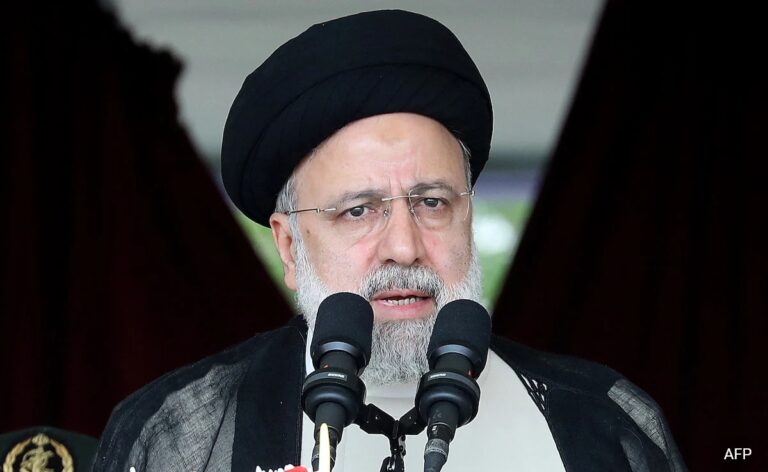
Ebrahim Raisi will accompany Iranian Foreign Minister
islamabad:
Iranian President Ebrahim Raisi will visit Islamabad on Monday and meet with Pakistani President Asif Ali Zardari, Pakistan’s Ministry of Foreign Affairs announced. The two countries are seeking to mend relations following deadly cross-border attacks this year.
The Ministry of Foreign Affairs said in a statement on Sunday that Raisi would be accompanied by a “high-level delegation, including foreign ministers, and a large business delegation.”
Retaliatory missile attacks in January on the porous border region of the divided Balochistan province further escalated tensions in the region, already heightened by the Israel-Hamas war.
The Iranian government carried out attacks against anti-Iranian groups in Pakistan in the same week it targeted Iraq and Syria.
Pakistan responded by attacking “extremist targets” in Iran’s Sistan-Balochistan province, one of the few predominantly Sunni areas in Shiite-majority Iran.
Both countries have accused each other of harboring extremists in the past.
In the wake of Tehran’s foreign minister’s visit to Islamabad, the two countries pledged to improve dialogue and establish a liaison officer in both countries.
Sistan-Balochistan has long faced unrest from cross-border drug smuggling groups, ethnic Baloch rebels and Islamic extremists.
Raisi will also visit Lahore and Karachi to meet provincial leaders, the statement said.
It added that the two countries will further strengthen ties and enhance cooperation in “trade, connectivity, energy, agriculture and people-to-people contacts.”
Pakistan is looking to a joint gas project with Iran to resolve a long-running power crisis that has hampered economic growth.
The $7.5 billion Iran-Pakistan Gas Pipeline, intended to supply power to Pakistan’s power plants, opened to great fanfare in March 2013.
However, the project soon stalled due to international sanctions against Iran.
The Iranian government is building its own section of the 1,800-kilometer pipeline, which will eventually connect the South Pars gas field to the Pakistani city of Nawabshah, near Karachi.
In February, Pakistan’s outgoing interim government approved construction of an 80-kilometre section of the pipeline, primarily to avoid paying Iran billions in penalties due to years of delays.
The U.S. government said Pakistan would not support any future pipeline construction and warned that it could face U.S. sanctions.
(Except for the headline, this story has not been edited by NDTV staff and is published from a syndicated feed.)

